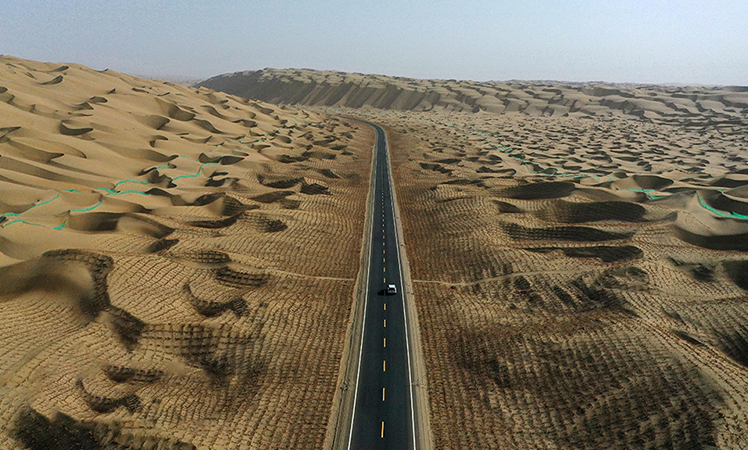China's acupuncture gains popularity in BRICS countries
BEIJING, June 29 (Xinhua) -- China's acupuncture is enjoying growing popularity in BRICS countries. "Acupuncture has become a common medical treatment and is regarded as the 'Oriental magic needle,'" said Hui Qing, vice president of the World Federation of Acupuncture-Moxibustion Societies.
Hui runs a clinic in downtown Sao Paulo, Brazil. Alici, 50, is one of the regular visitors to the clinic, who has made the 30 minute-acupuncture a part of her life. Every month, she takes an eight-hour night-bus ride from her home in Minas Gerais to Sao Paulo to attend the clinic.
She was first hit with rheumatoid arthritis a decade ago, resulting in severe joint pain and difficulty walking. A friend recommended she try acupuncture at Hui's clinic. She followed the friend's advice and found her pain was gradually eased, an outcome she wasn't expecting.
"This kind of story happens every day in Brazil," Hui said.
The treatment is not only gaining popularity in Brazil.
Since 1998, more than 300 cerebral palsy patients from Russia have been treated at the Shanxi Cerebral Palsy Rehabilitation Hospital, according to Guo Xinzhi, former president of the hospital.
More than 10 doctors have also been sent by the hospital to aid the Republic of Dagestan and the Chechen Republic, curing more than 4,000 cerebral palsy patients, Guo added.
At the University of Johannesburg in South Africa, acupuncture has become one of the top 15 most popular courses since it started in 2020. More than 1,000 students applied for courses related to acupuncture that year, but only 45 were admitted. In 2022, of 7,000 applicants, only 58 students won places.
Saurabh Sinha, vice president of University of Johannesburg, said that traditional Chinese medicine (TCM) and acupuncture are important components of complementary medicine that can improve health-care in South Africa.
For students from remote and underprivileged areas of South Africa, these medical skills will play a positive role in improving local health services when they return home to work, he added.
Acupuncture not only helps improve local health services in South Africa, but also plays an important role in strengthening the relationship between China and India.
In the heart of Ludhiana, India, lies the Dr. Dwarkanath Kotnis Health and Education Center, a hospital dedicated to acupuncture treatment. The hospital dean, Dr. Inderjit Singh, has been practicing acupuncture for more than 48 years.
Dr. Singh said that, in the 1930s, Indian doctors Dr. Dwarkanath Kotnis and Dr. B.K. Basu joined the Indian medical team to aid China in the Chinese People's War of Resistance against Japanese Aggression. Dr. Kotnis died on the mission, aged 32.
In 1957, Dr. Basu visited China again. Troubled by sinusitis for a long time, he experienced acupuncture treatment and received obvious therapeutic effects.
Dr. Basu decided to study acupuncture and bring the ancient Chinese medical treatment back to his country. After returning to India, he used acupuncture to treat patients and at the same time trained more acupuncturists.
"I was one of his students at the time," Dr. Singh said.
The hospital has now grown from a small clinic with only one room and two beds to a prestigious hospital with more than 200 doctors and 39 acupuncture beds. Almost 2,000 patients receive acupuncture treatment there every year.
The hospital won its fame by word of mouth, for it charges low fees and often conducts free medical-treatment activities. Many patients from New Delhi, Bangalore and other places visit the hospital for treatment.
Dr. Singh's two daughters and one of his sons-in-law are now also acupuncturists. He said he would carry forward the work of Kotnis and Basu through acupuncture to bring together the people of India and China.
"Acupuncture has become an important bridge between China and India," he said.
Dr. Singh is not alone in believing in the power of acupuncture to join nations in a common endeavor of great value.
Liu Baoyan, president of the World Federation of Acupuncture-Moxibustion Societies, said, "Acupuncture has gradually gained recognition in more countries, and some BRICS countries have incorporated acupuncture into their national medical systems. In the future, acupuncture is bound to make greater contributions to the construction of a community of common health for mankind."
Photos
Related Stories
- Pakistan congratulates China on successful hosting of BRICS meetings
- Xi: BRICS should bring positive, stabilizing and constructive strength to the world
- BRICS embarking on new journey of digital economy cooperation: MOC
- BRICS cooperation injects vitality into global development, wins worldwide applause
- Wang Yi describes BRICS 'China Year' as fruitful
Copyright © 2022 People's Daily Online. All Rights Reserved.









